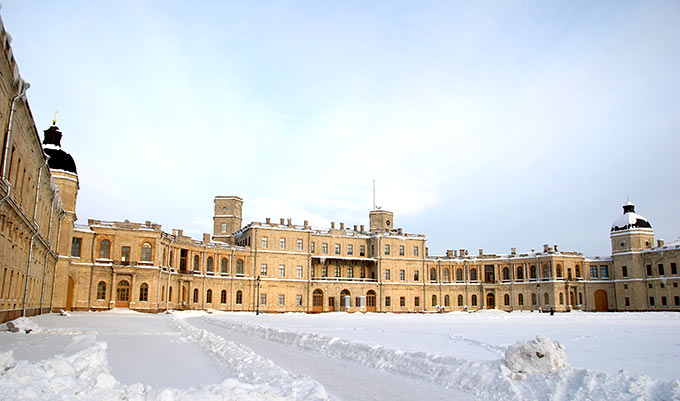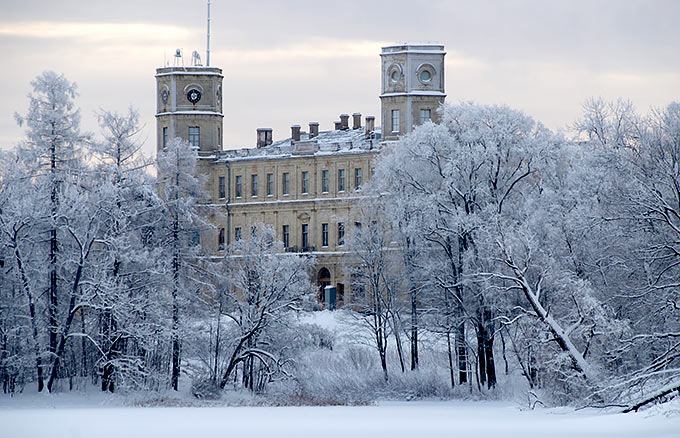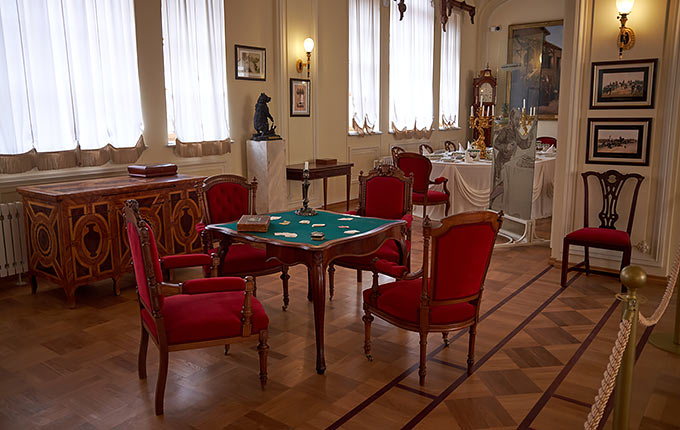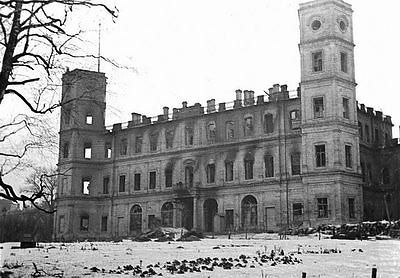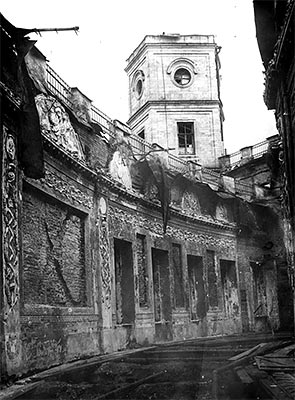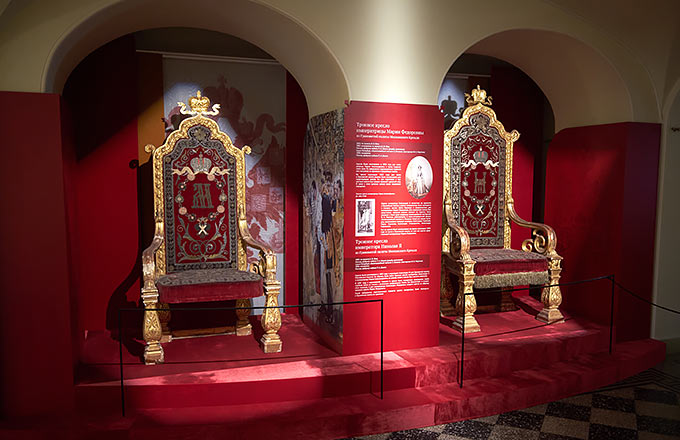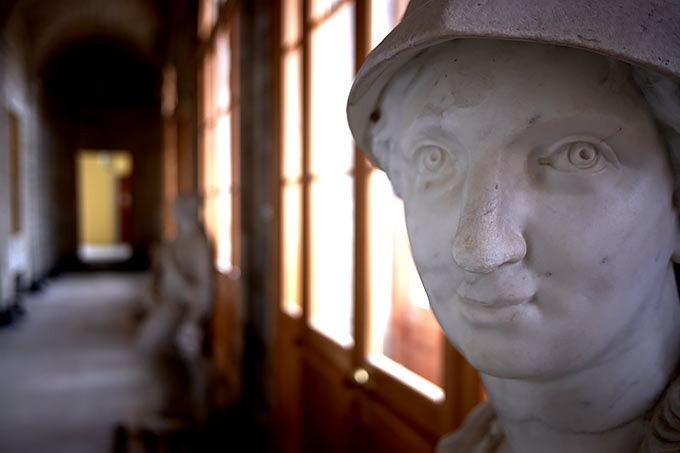History of Gatchina Palace
Gatchina palace does not concerned as forts or other fortified installations although it looks like a castle and building was a victim of bombing and fire during WWII. Therefore, after visiting it I have decided to make a section about it on this web site. Now, rather brief history of object:
For the first time myza or country estate Gatchina was mentioned in inventory books in 1499 as a hunting house. Then this place belonged to emperor Peter I, and then to grand duke Kurakin. In 1765 Ekaterina II bought myza and presented it to her favorite Grigory Orlov. Architect Rinaldi designed a romantic style hunting castle-palace with towers and underground passage. Construction works begun in 1766.
In 1767 started painting and decorating works of facades and in 1781 Rinaldy's project was completely executed.
Since August 1783 the palace became the heir Paul's I residence. In 1796 reconstruction of palace began by the project of architect Brenna. There were reconstructed the wings of palace, was constructed the bastion wall with eight guns and four drawbridges and was arranged the big parade-ground.
In 1844-1852 years there was new reconstruction conducted by architect Kuzmin. The wings became 3 floor height with deep cellars. In 1851 were altered bastions and constructed 4 stone bridges. Also there was introduced a new progressive system of heating of a Zimmer's pneumatic system instead of stove heating.
Till 1917 the palace served as a "hostel" for members of imperial family. There were rich assemblies and collections of china, furniture, arms and paintings and palace referred as the "second Hermitage". In October - November of 1917 here was a headquarter of head of the Provisional Government Kerenskij and general Krasnov.
May 1918 the museum was opened in the palace for visiting by proletariat for the first time. In 1920th a lot of museum articles were sold to the western private collectors as far as the young Soviet Republic needed machine tools and steam locomotives. In 1930th here were a military barracks and offices.
September, 10, 1941 the Soviet armies left Gatchina city (at that times it was known as Krasnogvardeisk). There were got smashed windows and slightly damaged walls of the palace by German bombardments, but the entire palace was intact.
"When Ivans comes, nothing will be here..." - this inscription with name of writer and his home address in Germany was found out by the Soviet soldiers in January 1944 on walls of a palace. All values that could be taken out were taken out by Germans, the palace was set fire. There were more than 54 thousand museum subjects in the palace before the war and 38000 of them has been irrevocably lost.
In 1948 was restored a roof of the palace. Various military organizations and offices inhabited this building.
In 1961 restoration of the museum began, however in 1963 this work was stopped, and renewed in 1976 only and proceeds till this day. Now the Throne Hall of Paul I, the Anteroom, the Marble Dining Room and a lot of other objects has been restored, but when I was there they were closed so I did not see all this beauty. May be in the next time...
Impressions
It was beautiful.
The palace is located on the top of hill and has a quite fortification look. For amateurs of romanticism there is the comfortable and well covered underground passage. Not a bad buffet opens in the Palace. There is no need to be equipped with mine detector, knife, lantern, rubber boots and etc. for this expedition.
The palace park by comparison with Tsarskoe Selo, Pavlovsk and Peterhof is deserted, empty and quiet, and it is remarkable. Autumn especially. It is a pity, but this theme is not suitable for this site...
Land forts and fortress:
Bip Castle Gatchina Ivangorod Izborsk Kexholm Kirillov Monastery Koporye Novgorod Pechorskiy Monastery Peter&Paul Fortress Porkhov Pskov Schlisselburg Staraya Ladoga Tikhvin Vyborg Hameenlinna Hamina Kastelholm Kymenlinna Lappaenranta Raseborg Castle Savonlinna Tavetti Turku Visby Fredrikstadt Fredriksten Hegra Fort Hoytorp Fort Arensburg Narva Tallinn Antipatris Caesarea Jerusalem Latrun Fort Masada
Sea forts and fortresses:
Alexander Fort Ino Fort Krasnaya Gorka Fort Kronstadt: Kotlin isl. Kronstadt: North Forts Kronstadt: South Forts Trongsund Hanko Svartholm Sveaborg Marstrand Siaro Fort Vaxholm Oscarsborg
Artillery batteries and individual guns:
Coastal Artillery Hemso Fort
Fortified areas and defensive lines:
Karelian Fortified Area (KaUR) KrUR Leningrad Mannerheim Line Nevsky Bridgehead VT Line Harparskog Line Salpa Line Gothland
Russian
S e a r c h All news

